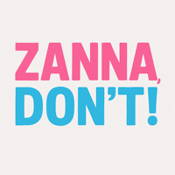
Overview
Synopsis
In an alternate-reality American high school where being gay is the norm and heterosexuality is taboo, Zanna, a magical matchmaker armed with his wand, devotes himself to pairing up his classmates with their perfect same-sex partners. Heartsville High is full of budding romances and lively teen spirit, but things take a turn when two students — Kate, the ambitious class president, and Steve, the star quarterback — fall for each other. Their heterosexual attraction shocks the school, challenging social expectations in a community where straight relationships are considered scandalous.
As the school grapples with this “forbidden” romance, Zanna uses his magic to help his friends navigate the fallout while questioning whether love should ever be judged or restricted. Ultimately, the story flips conventional tropes on their head, using satire, comedy, and fantasy to highlight themes of acceptance, tolerance, and the courage to love who you love. The show ends with a heartfelt reminder that love, in any form, deserves celebration.
Show Information
Context
Zanna, Don’t! premiered Off-Broadway in 2003 with book, music, and lyrics by Tim Acito and additional contributions from Alexander Dinelaris. The show emerged during a period of increasing LGBTQ+ visibility in the early 2000s, shortly after landmark moments such as the debut of Will & Grace and ahead of the legalization battles over same-sex marriage. Against this backdrop, the musical embraced satire and whimsy, presenting an alternate world where heteronormativity is flipped upside down.
to read the context for Zanna, Don't! and to unlock other amazing theatre resources!Plot
Characters
| Name | Part Size | Gender | Vocal Part |
|---|---|---|---|
|
Lead |
Male |
Tenor, Baritone |
|
|
Lead |
Female |
Mezzo-Soprano, Alto |
|
|
Lead |
Male |
Baritone |
|
|
Supporting |
Male |
Tenor, Baritone |
|
|
Supporting |
Male |
Tenor |
|
|
Supporting |
Male |
Baritone |
|
|
Supporting |
Female |
Mezzo-Soprano |
|
|
Supporting |
Female |
Mezzo-Soprano |
|
|
Ensemble |
Not Specified |
|
Songs
Act I
Act II
A song with an asterisk (*) before the title indicates a dance number.
Monologues
Scenes
Key Terms
Camp is a performance style that celebrates exaggeration, theatricality, and deliberate bad taste for comic or satirical effect. Often marked by irony, flamboyance, and over-the-top characterizations, camp turns the absurd into entertainment. In theatre, it invites audiences to laugh both at and with the performance’s outrageousness.
Parody is a comedic imitation of a style, genre, or work that exaggerates its features for humorous or satirical effect. In theatre, it playfully mocks conventions, characters, or cultural icons while still relying on audience recognition of the original. Parody can both celebrate and critique its subject, often blurring the line between homage and ridicule.
A genre that centers LGBTQ+ characters and themes, challenging heteronormative narratives and celebrating diverse identities in performance.
Satire is a dramatic style that uses humor, irony, and exaggeration to criticize human behavior, social institutions, or political systems. In theatre, it highlights flaws and hypocrisies through wit and parody, encouraging audiences to laugh while also reflecting on serious issues. Satire can range from lighthearted comedy to biting social commentary, making it both entertaining and thought-provoking.
Videos
Quizzes
Sorry! We do not currently have quizzes for this guide.
Themes, Symbols & Motifs
Themes
Love and Acceptance – At its heart,
to read about the themes, symbols and motifs from Zanna, Don't! and to unlock other amazing theatre resources!Quote Analysis
Sorry! We do not currently have learning modules for this guide.
